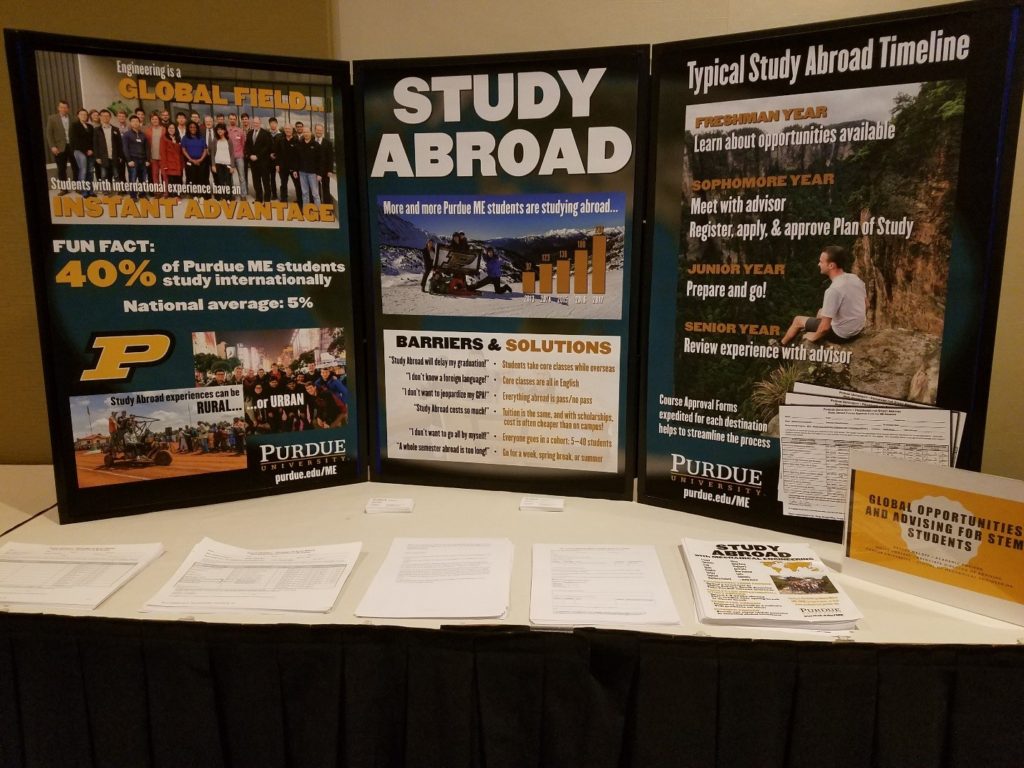Holly Englert was a recipient of a PACADA Professional Development Grant for the 2016 year. She used her funds to attend the NACADA Region V Conference in Chicago, IL. See below for more information about her experience!
NACADA Region V Conference – Chicago, IL – March 15-17, 2017
I was able to attend the NACADA Region V Conference in Chicago, IL in March (my very first NACADA conference) thanks to a grant received from the PACADA Professional Development Committee. I was very much looking forward to attending this conference to learn best practices in advising and to perhaps learn some new and creative strategies when working with various student populations.
I attended a session titled, “Got Grit? A New Advising Method.” The presenters discussed the differences between grit and resiliency and how to advisors can work to instill grit in students. The presenter’s defined grit using phrases like; “perseverance and passion for long term goals,” and “living life like a marathon not a sprint,” and that “grit is the stamina not the intensity” or the “consistency of effort over time.” The presenters stated that resiliency is the ability to bounce back after adversity and that resiliency is a pre-cursor to grit. A surprising fact they shared was grit is more predictive to a student’s success than IQ and/or test scores. Students who display grit often will have lower test scores but a higher GPA, these students work harder to keep up with their peers. Often times, the high achieving students (those with high test scores, high GPA, high IQ) display low levels of grit. So how can we as advisors instill grit in students? First, the presenters shared we need to work with students on how they respond to new challenges. We can do this by helping them to examine their perceptions, assist them in developing a plan, and being a member of their support network. Second, advisors should ask directed questions such as; what did you learn this semester? What mistake did you make that taught you something? What did you try hard at this semester? Third, it is all about goal setting. Advisors should work with students to set long term goals and revisit and revise those goals in each meeting. Fourth advisors should work to foster a culture where a growth mindset is developed. Advisors should be supportive but demanding, discuss self-motivation, and do goal setting when working with students who need to develop grit. The presenters stated that students should be praised for their effort and not their intelligence.
Another session I attended was titled “Reasons for their Departure: A Look at Undergraduate Women who Abandon STEM Majors.” I was particularly interested in the session since I advise in a STEM major. The presenter did a small qualitative study at the mid-size state school where she advises. While interviewing female students who left STEM majors for a non-STEM major she shared that five themes developed. The first theme was lack of preparation. The students shared that they had never had to study or didn’t learn how to properly study. They shared they had little to no exposure in STEM classes prior to enrolling in college and that they lack experience in these settings. They also shared this was their first time failing and they didn’t know what to do. The second theme that emerged was failure to access resources. The students shared they knew about the resources available but they were afraid to go. The third theme was regarding the method of instruction of their courses. Most of their courses were in large lecture settings where exams made up most of the grade. The students found that when they had interaction with the faculty they seemed uninterested, stale, and not friendly. There was no community and little interaction in the courses and it was all independent work. The fourth theme that emerged was there was no sense of belonging in the students STEM majors. They discussed issues of alienation that while not obvious, was easy to notice. The students talked about feeling like outsiders. The students stated that their peers seemed more prepared and that they felt intimidated asking male faculty and students for help because they didn’t want to perpetuate the stereotype of women not being capable of the work in a STEM field. The last theme to emerge was about career expectations. Many of the students shared that they didn’t know what a career in a STEM field would actually be like and once they got internships or worked in labs they found they didn’t enjoy the field. Lastly, the presenter discussed what advisors in STEM fields can do moving forward to assist female students. Advisors should review the major and encourage early career exploration. Advisors should normalize the use of academic support resources. Advisors should encourage participation in women in STEM initiatives. And the advisor should always validate the student’s experiences.
In addition to being an attendee at the conference, I presented a poster presentation alongside my colleague Ashley Maloff. Our poster centered on global opportunities for students in STEM majors. We shared some best practices for advising students in STEM fields who would like to study abroad, timelines to consider, and some facts about our program.

Overall, my first experience attending a regional NACADA conference was successful. Thank you PACADA for the opportunity to attend!